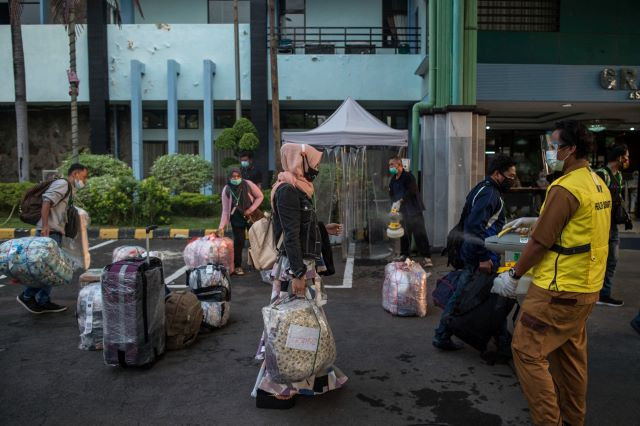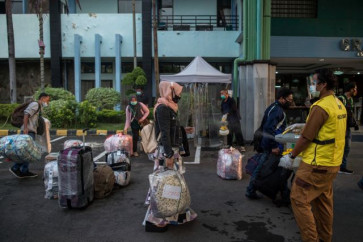Popular Reads
Top Results
Can't find what you're looking for?
View all search resultsPopular Reads
Top Results
Can't find what you're looking for?
View all search resultsEnvisioning a government-backed international payment system for remittances
The payment system might adhere to the current exchange rates to prevent migrant workers from being subjected to inflated rates that diminish the amount received by the intended recipients.
Change text size
Gift Premium Articles
to Anyone
T
he World Bank estimates that around nine million Indonesians are employed overseas. In 2022, Indonesia received US$9.96 billion from these workers, making Indonesia the second-busiest remittance corridor in Southeast Asia, trailing just behind Vietnam.
While this figure may appear to be an underestimate, as it does not cover remittances facilitated through informal channels (e.g., through unofficial money transfer operators or carried out by relatives), it nonetheless holds significant implications for the Indonesian economy.
The funds remitted by overseas workers are typically allocated toward meeting essential family expenditures in their country of origin (e.g., food or housing) and enhancing household access to public services (e.g., healthcare or education). Hence, remittances play a pivotal role in poverty alleviation, stimulate national consumption and bolster investment, thereby facilitating economic growth in the workers' home country.
Although overseas workers generally send their wages on a regular basis, empirical evidence suggests that the remittance amount to their home country is contingent upon exchange rates and transaction costs.
Substantial appreciation in the currency of the migrant's home country, coupled with exorbitant transaction costs, may dissuade them from remitting money. This can decrease the inflow of funds to the nation, thereby having adverse effects on the economy.
In the context of Indonesian foreign workers, the cost of remitting money to Indonesia varies significantly based on their location. For instance, workers located in Singapore face transaction costs as low as S$5 for each remittance to Indonesia. Indeed, this amount seems insubstantial and should not be a problem for large-value remittances.
However, such an amount could be problematic for poor migrants who regularly send small remittances. On average, Indonesian migrant workers allocate 18 percent of their earnings to remittances sent back to their home country.



















